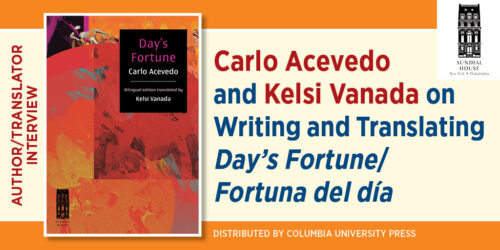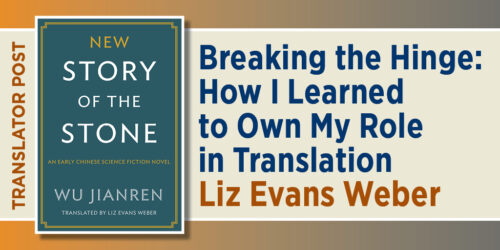Interview with Susan Bernofsky
“Translation is, in a sense, the slowest possible reading. You’re watching the great writer build a story arc, and you’re watching sentence by sentence how that arc is being shaped. In that sense it slows down your reading and studying of an author.”—Susan Bernofsky
In a recent interview with Words Without Borders, Susan Bernofsky, coeditor with Esther Allen of In Translation: Translators on Their Work and What It Means, discussed her own practice as a translator as well as a variety of other issues related to translation. Among other topics, Bernofsky talks about “stealth gloss,” whether or not to “domesticate” translations, whether it is better to translate a text by a dead or a living author, and what book she views as the “holy grail” of translation:
Here’s an excerpt from the interview (Shaun Randol (SR) is the interviewer for Words Without Borders. You can read the full interview here):
SR: Ultimately do you think translating makes one a better writer?
SB: Yes I do, because it makes you think consciously about how sentences are put together, about the actual techniques the writer used to make this sentence have this effect. Translating makes you really conscious of the richness of synonyms out there as well as sentence structure. I constantly hear from students about how translating has changed how they approach their own fiction.
Translation is, in a sense, the slowest possible reading. You’re watching the great writer build a story arc, and you’re watching sentence by sentence how that arc is being shaped. In that sense it slows down your reading and studying of an author.
SR: Would you prefer it if we all spoke one language?
SB: No, because we think differently in different languages. To take away the multiplicity of languages is to take away difference, and difference is interesting. It would be bland and boring if everyone spoke the same language. The literary output that we produce would also be much more monotonous.
SR: Does translation into English enhance English language supremacy or does it preserve language plurality by allowing writers to use their own languages?
SB: The latter. You already have the phenomenon of writers trying to write straight in English so as to have direct access to that global market, but I think that when we translate foreign literature we are creating interest in the foreign culture, thereby also the foreign language.




